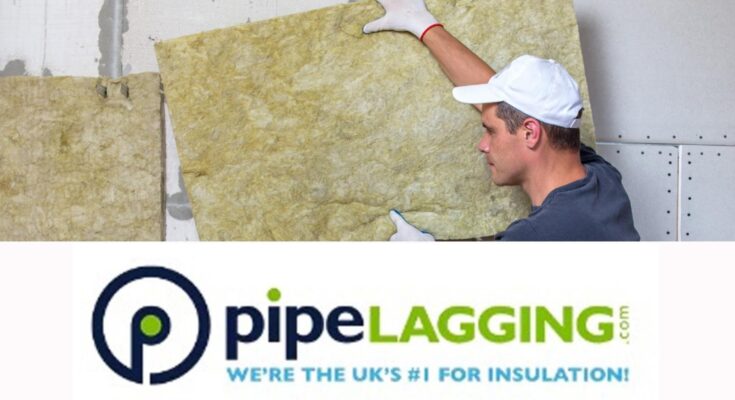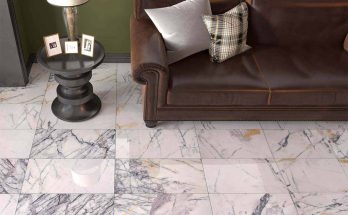Protecting life and property from fire hazards is a priority in construction. As technology advances and architectural designs evolve, building materials must also progress. Insulation, a crucial component in maintaining a structure’s energy efficiency, is vital to fire safety. One insulation type that stands out in both domains is the
mineral wool insulation slab.
What is a Mineral Wool Insulation Slab?
Originating from fibres derived from molten rocks, slag, or even glass, mineral wool insulation slabs—often referred to as rock wool, stone wool, or slag wool—are products that undergo a process of spinning these fibres, followed by bonding them using specific binders to form durable slabs. These slabs can vary in density, size, and application and are designed to suit different construction requirements.
Core Characteristics
- Thermal Performance: Mineral wool’s excellent R-value per inch significantly reduces heat transfer. This reduces energy bills and contributes to a building’s overall thermal comfort.
- Acoustic Performance: Sound transmission, particularly in commercial settings or nearby residential units, can be a significant concern. Mineral wool offers sound dampening, reducing noise disturbances and improving the acoustic environment.
- Moisture Resistance: Unlike some other insulation materials, mineral wool does not retain moisture. Its inherent water-repelling properties mean a lower likelihood of mould and mildew, ensuring structural and health benefits.
- Durability: The longevity of mineral wool is commendable. Temperature fluctuations, which can sometimes distort materials, leave mineral wool unaffected. This means consistent performance over extended periods.
Fire-Resistance: An In-depth Look

- Non-combustibility: One of the prime concerns in fire safety is the material’s ability to catch and spread fire. Mineral wool stands out here—it doesn’t ignite when exposed to fire.
- High Melting Point: A significant aspect of fire resistance is how a material responds to high temperatures. Mineral wool boasts a melting point above 2000°F (1093°C), setting a high standard.
- Fire Barrier: Beyond resisting fire, mineral wool can act as a barrier, restricting the movement of fire and smoke within a building.
- Certifications and Standards: Its fire-resistant prowess is validated by several international benchmarks:
- BS 476: Parts 20 & 22: This standard assesses the fire resistance of mineral wool, crediting it with up to 4 hours of fire integrity and 1 hour of insulation.
- BS EN 13501-1: In terms of fire performance, mineral wool proudly attains an A1 classification, the top tier.
- BS EN 13162: This provides a checklist and confirms that mineral wool meets the requirements expected of thermal insulation products.
Advantages of Mineral Wool for Fire Protection
- Safety: A primary benefit is enhanced overall safety, with the material providing a line of defence against the rapid fire spread.
- Regulatory Compliance: Beyond its practical benefits, mineral wool ensures that buildings meet the fire resistance requirements mandated by various building codes and insurance companies.
- Multifaceted Performance: Beyond just fire resistance, the material is a triple threat, providing thermal insulation, noise dampening, and moisture resistance.
- Eco-friendly: Sustainability is a growing concern. With mineral wool often made from natural or recycled content and devoid of harmful substance emissions, its ecological footprint is commendable.
Applications in Fire Protection
Mineral wool’s versatility ensures its presence in various applications:
- Exterior and Interior Walls: As an exterior insulating solution, it doubles as a fire barrier, especially in claddings. Additionally, fire-rated interior assemblies often contain mineral wool.
- Floors and Ceilings: Beyond just insulation, mineral wool’s properties make it an ideal candidate in fire-rated floor and ceiling assemblies, providing both sound and thermal benefits.
- Roofs: In roofs, mineral wool provides a crucial layer, ensuring a fire barrier between the roof covering and its deck.
- Doors and Partitions: In commercial settings, fire-rated doors and partition assemblies often utilise mineral wool for added fire resistance and soundproofing.
Mineral Wool FAQs
- Is mineral wool insulation slab truly fireproof?
- While “fireproof” is a strong term, mineral wool’s properties render it extraordinarily fire-resistant, making it a top contender in fire safety.
- How does mineral wool compare with other insulation materials regarding fire resistance?
- Its exceptional melting point and non-combustible nature often place mineral wool ahead of many other insulating materials regarding fire resistance.
Conclusion
Considering its vast array of beneficial properties, the mineral wool insulation slab is a premier choice in modern construction. From enhanced fire safety to thermal and acoustic benefits and its commitment to sustainability, mineral wool encapsulates what it means to be efficient and safe in today’s construction landscape.




